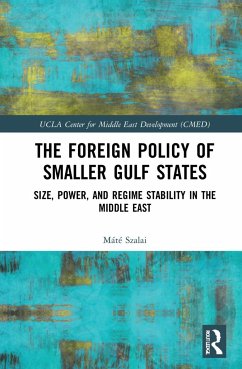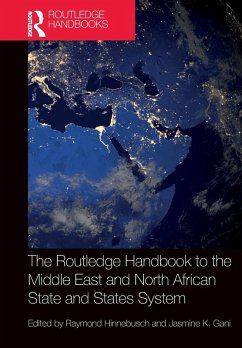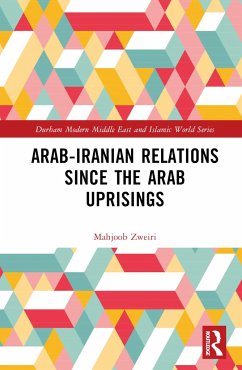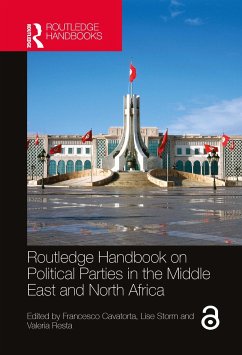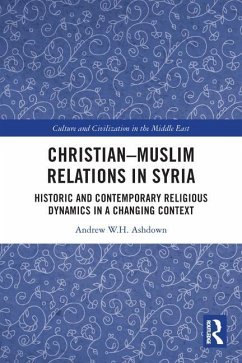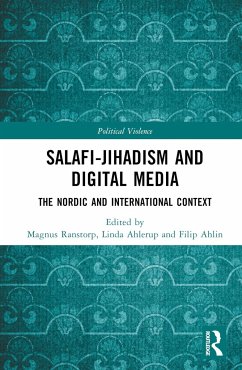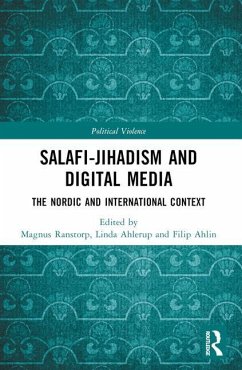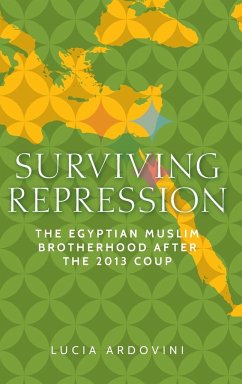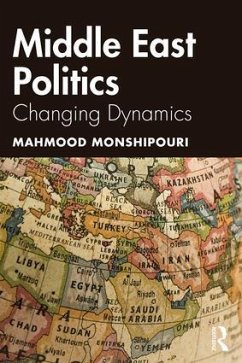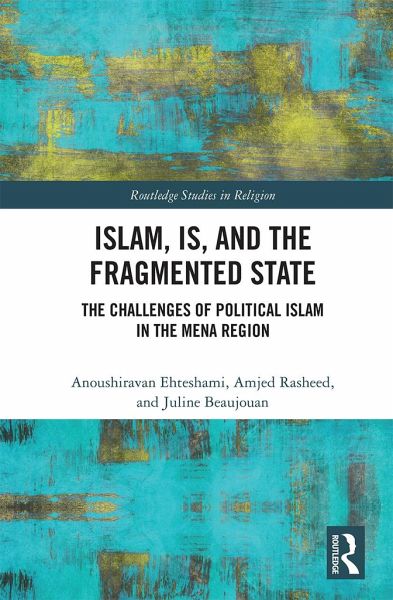
Islam, IS and the Fragmented State
The Challenges of Political Islam in the MENA Region
Versandkostenfrei!
Versandfertig in 6-10 Tagen
46,99 €
inkl. MwSt.
Weitere Ausgaben:

PAYBACK Punkte
23 °P sammeln!
This book provides a pioneering and original study of the regional effects of political Islam. It sets out the multifaceted interactions between Islam and politics in the Middle East and North Africa (MENA) region, focussing in particular on the so-called Islamic State (IS) organization in its broad discussion of political Islam. Utilizing a trans-disciplinary perspective, the book interacts with social constructivism and complex realism theories to analyse the clash between the modern notion of the state and that of identity in the region.Looking at issues such as the rise of IS and its attem...
This book provides a pioneering and original study of the regional effects of political Islam. It sets out the multifaceted interactions between Islam and politics in the Middle East and North Africa (MENA) region, focussing in particular on the so-called Islamic State (IS) organization in its broad discussion of political Islam. Utilizing a trans-disciplinary perspective, the book interacts with social constructivism and complex realism theories to analyse the clash between the modern notion of the state and that of identity in the region.
Looking at issues such as the rise of IS and its attempts to establish a caliphate, the book offers three different, yet complementary, levels of analysis for its discussion. These being: Regional (dis)order, the erosion of state power and its boundaries, and the role of non-state actors in shaping the politics of the MENA region. Each of these levels are addressed in detail in turn in order to build a comprehensive picture of state and political Islam in the Arab core of the MENA region. What emerges is a comprehensive analysis of the interlinked relationships between political and Islamic elements of Arab polities and societies.
As such, this book will be of great interest to academics and policymakers focusing on matters relating to the study of Islam, Islam and politics, study of religion more broadly, and security studies and area studies, particularly in the MENA region.
Looking at issues such as the rise of IS and its attempts to establish a caliphate, the book offers three different, yet complementary, levels of analysis for its discussion. These being: Regional (dis)order, the erosion of state power and its boundaries, and the role of non-state actors in shaping the politics of the MENA region. Each of these levels are addressed in detail in turn in order to build a comprehensive picture of state and political Islam in the Arab core of the MENA region. What emerges is a comprehensive analysis of the interlinked relationships between political and Islamic elements of Arab polities and societies.
As such, this book will be of great interest to academics and policymakers focusing on matters relating to the study of Islam, Islam and politics, study of religion more broadly, and security studies and area studies, particularly in the MENA region.





